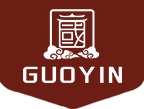16
2025
-
09
Q235 Carbon Steel Pipe Factory Direct: Large Diameter Carbon Steel Pipe Price and Welding Process Details
Author:
I. Material Properties and Industrial Applications of Q235 Carbon Steel Pipe
Q235 carbon steel pipe is one of the most widely used structural steel materials in the industrial sector in my country. Its excellent comprehensive properties have given it a crucial position in construction, machinery manufacturing, and pipeline engineering. The "Q" in the steel's name represents the yield strength, and "235" refers to its lower yield strength of 235 MPa. This nomenclature intuitively reflects the material's fundamental mechanical properties. Chemically, Q235 steel contains a carbon content between 0.05% and 0.70%, along with alloying elements such as silicon and manganese. This composition ensures sufficient strength while maintaining excellent ductility and toughness.
The most notable feature of Q235 steel is its excellent weldability, mainly due to its low carbon content and optimal alloy ratio. During welding, Q235 steel is less susceptible to hardened microstructures and exhibits a low tendency to cold cracking in the welded joint area, making it particularly suitable for steel structural projects requiring a high degree of welding. Q235 steel is divided into four grades: A, B, C, and D, depending on the impact temperature. Q235D steel maintains excellent impact toughness even at temperatures as low as -20°C, giving it a distinct advantage in engineering applications in cold regions.
Regarding mechanical properties, Q235 steel has a tensile strength of 375–460 MPa and a standard elongation of 26%. These characteristics allow it to withstand significant deformation without breaking, a particularly important characteristic during pipe installation and structural assembly.
From an economic perspective, Q235 steel's relatively simple casting process and low production costs give it a competitive advantage in competitively priced projects. It is worth noting that while Q235 steel is not specifically designed for pressure vessels, it is still used in pressure vessel manufacturing in applications that do not require high pressure due to its extensive experience and widespread availability.
In practice, Q235 carbon steel pipes are often used in industrial components such as tie rods and hooks, and their production accounts for a significant proportion of total steel production, reflecting their importance in the industrial sector.
II. Large-Diameter Carbon Steel Pipe Market Price Trends and Procurement Strategies
In 2025, the large-diameter carbon steel pipe market showed clear price stratification, with a general price range between 3,400 and 9,070 yuan/ton. This price difference is mainly due to differences in material, specifications, and processing precision.
Take Q235B as an example. Its market price is approximately 3,600 to 4,000 yuan/ton, making it an economical choice for building and mechanical structures. However, it should be noted that its relatively low strength can cause deformation under heavy loads.
In contrast, 15CrMoG alloy pipes fetch prices between 8,970 and 9,070 yuan/ton. While expensive, their excellent high-temperature resistance makes them an essential material for special applications such as power plant boilers.
Specifications also significantly influence price. The combination of outer diameter and wall thickness directly determines the material's use and processing difficulty. For example, a 60 mm outer diameter, 4 mm wall thickness carbon steel pipe costs approximately 161 yuan per meter, while a 100 mm outer diameter, 5 mm wall thickness pipe costs 55.7 yuan per meter.
Increasing wall thickness significantly increases material costs. In one case, using an 8 mm wall thickness pipe increased material costs by approximately 23%.
Market trends indicate that the slowdown in energy project contracting has led to a decline in the transaction price of large-diameter carbon steel pipes, with a weekly drop of 30 to 50 yuan per ton.
Regarding the contracting strategy, bulk purchases often offer more favorable prices, and some manufacturers claim they are "negotiable for larger quantities," allowing for cost optimization in large-scale projects.
Key words:
Related news


